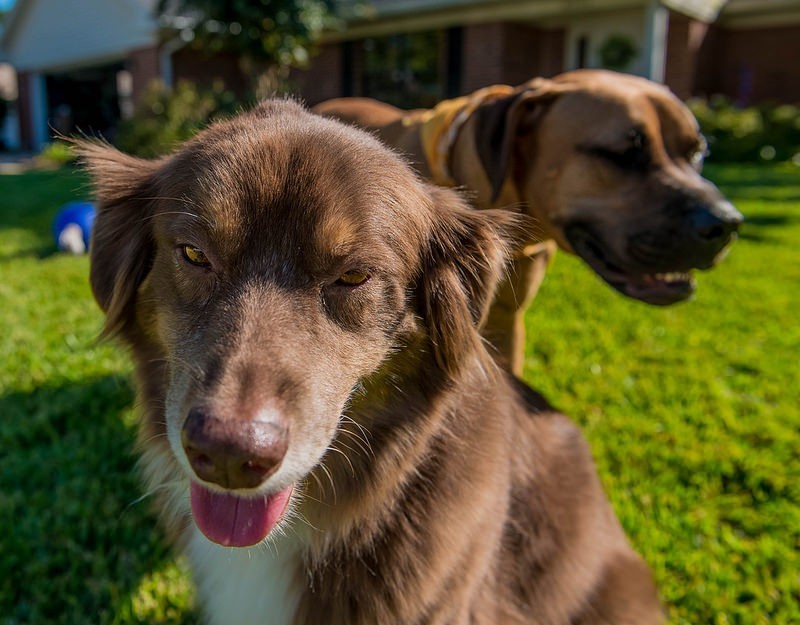As pet owners we all have options and thoughts on our dogs. What they're thinking, what they want, whether or not they think we're the best owners in the world. It's true, we think these random things. But wouldn't it be cool if scientists could TELL what was really going on? Well, in today's article…. they show us that they kind of can.
Those big brown eyes gaze at you, deeply. Your heart leaps. You caress, murmuring sweet nothings. And as those big browns remain fixed on you, the tail wags.
Devoted dog. Besotted owner. That continuous loop of loving reinforcement may begin with the dog’s gaze, according to a new report in Science.Japanese researchers found that dogs who trained a long gaze on their owners had elevated levels of oxytocin, a hormone produced in the brain that is associated with nurturing and attachment, similar to the feel-good feedback that bolsters bonding between parent and child. After receiving those long gazes, the owners’ levels of oxytocin increased, too. The dog’s gaze cues connection and response in the owner, who will reward the dog by gazing, talking and touching, all of which helps solder the two, the researchers said. They suggest that dogs became domesticated in part by adapting to a primary human means of contact: eye-to-eye communication.
And when researchers gave dogs extra oxytocin through a nasal spray, the female dogs (though not the males) gazed at their owners even longer, which in turn boosted the owners’ oxytocin levels.
“What’s unique about this study is that it demonstrates that oxytocin can boost social gaze interaction between two very different species,” said Steve Chang, an assistant professor of psychology and neurobiology at Yale who was not involved in this latest research.
Dr. Chang, who studies oxytocin in animals, noted that through domestication, dogs came to regard humans as their “key social partners,” while humans also came to view dogs as social partners.“In a way, domesticated dogs could hijack our social circuits, and we can hijack their social circuits,” he said in an email, as each species learned how to raise the other’s oxytocin levels, facilitating connection.
The researchers also tested wolves raised by humans to see whether a wolf-to-owner gaze would raise oxytocin levels in either or both. But compared with dogs, the wolves scarcely gazed at their owners, and the owners’ oxytocin levels barely budged.
“If I was dropped on Mars,” Dr. MacLean said, “and everyone was speaking a language I didn’t understand, and I knew I could never acquire their language, I’d just give up. But dogs don’t. They’re not reluctant to tune in to us at every moment.”
So basically science has just proven what we already knew. Some could balk at this, but to us, it's a victory! We've always felt such a strong connection to our dogs and we've always felt a sense of reciprocation with them. But for years we've read articles and blurbs that basically state that dog owners project these feelings onto their pets but they're not accurate. Well, to all those writers who told us it wasn't true….It's ok to be wrong.
Such a fascinating article from Well Blogs at the New York Times. To read the full article and to watch their video, click here.










